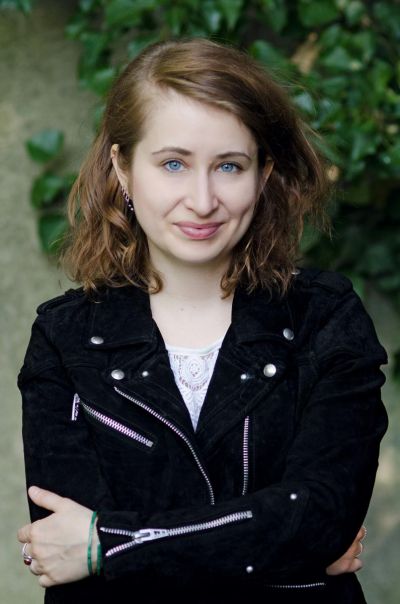Mithu M. Sanyal

“Rape” was also the subject matter that introduced Sanyal to the biggest wave of outrage to date: During a reading from her book, she learned from the many people affected by sexual violence, who were present at the reading, that they consider the term “victim” to be a questionable compartmentalisation. It would perhaps be better to find a German equivalent for the term used in English-speaking countries - “survivor”. However, because this term can quickly evoke associations with the survivors of the Holocaust, those present suggested the German term “Erlebende“, which is akin to “experiencer”. Sanyal wrote an article in the “taz” with Marie Albrecht about finding the right term. What followed were insults, threats of murder and rape, which were mainly fired from right-leaning websites, which accused Sanyal of representing rape as a super experience. The fact that rape victims were less important to the Right than the verbal cudgeling of a non-white feminist - Marie Albrecht was spared the wave of outrage - is no overly bold conjecture. Since then, the wave of outrage has resulted in a corrective entry being written to counter this.
At the time, Sanyal also came up against a headwind from feminists and found out once again that there is not just THE ONE feminist position and grouping in Germany or anywhere else. The debate around “white feminism”, which was reignited in July 2022 by an interview in “Annabelle” magazine with Sophie Passmann, also bothered Sanyal because white feminism is a problem even if Passmann is not the enemy. Sanyal is extremely interested in the link between feminism and anti-colonialism, or rather post-colonialism, similar to the way it plays an important role in India. Sanyal says, “In Poland, it is Maria Janion, for example, who does a lot in this area and who inspires me very much.”
When it comes to the way Germans view their neighbour Poland, Sanyal says, “Reporting about our neighbour often has a kind of charm about it as if we are talking about a Banana Republic, only without bananas but with misogyny and xenophobia instead.” And even if this isn’t entirely incomprehensible to Sanyal, bearing in mind the conservative backlash in Poland and aberrations like the abortion law – what disturbs her about the view of Poland is the Germans’ tendency to forget history: “Who knows, for example, that until 1993 Poland had one of the most progressive abortion legislations in Europe? And who knows that colonial history does not always happen in exotic countries but that, for example, the German Empire was built on colonial expansion towards Eastern Europe?”
Sanyal has not been to Poland very often. She very much regrets that she didn’t manage to travel to the land of her ancestors to visit relatives with her mother before her death. Sanyal visited Kraków for the first time for the Conrad Festival at the invitation of the Polish Institute, and sums it up, “It was amazing. We also went to the book fair and I bought super hand-knitted socks there. Kraków is probably the most beautiful city I’ve ever been to.”


